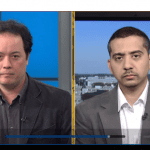“Isis has nothing to do with Islam!” has become the standard response by well-meaning Muslims to jihadist attacks. As a Muslim myself, I find it grotesque to observe the impunity with which jihadists murder innocent civilians, chanting the name of God who, in the Quran, likens Himself to a womb: “The Most Merciful and Compassionate”.
Of course, like any Muslim, my first instinct is to deny that such savages can, and should, have anything to do with Islam – the philosophy that has played a monumental role in shaping my liberal world view. However, increasingly I find this approach problematic and dishonest.
To begin with, if we are to assess whether the Islamic State (Isis) can be called Islamic, we must first set a suitable criterion by which to judge the ‘Islamicity’ of something. Either we can go by individual interpretations of Islamic texts, which would be a never-ending and perhaps a fruitless debate, or we could judge the Islamicity of something by observing what the majority of Muslim scholars and mainstream Muslims believe. For this essay, I will be choosing the latter criterion.
Taken that way, it is factually right to say that terrorism is not Islamic, considering the vast majority of Muslims condemn it. People on the far right, and unfortunately some on the left, who accuse Muslims of secretly sympathizing with terrorists are clearly deluding themselves, denying all evidence that proves otherwise. Lest we forget, Muslims are the biggest victims of Islamofascist violence.
Donald Trump said this week that Muslim communities are “absolutely not reporting” suspected terrorists, as if to say that Muslims support jihadists. But as Pew Polls show, the vast majority of Muslims do condemn Isis. Moreover, as experts point out, jihadist Muslims often socialise among themselves and hardly ever visit mosques or have any interaction with the local Muslim community.
But my contention is different. Saying terrorism has nothing to do with Islam and saying ISIS has nothing to do with Islam are two different things, for it is reductionist to restrict ISIS’ savagery to terrorism alone. After all, apart from killing innocent civilians in terrorist attacks around the globe, they also kill people for apostasy, blasphemy, adultery and homosexuality, to cite a few examples.
Can we also confidently say that the vast majority of Muslims condemn these inhumane practices? Unfortunately not. A significant proportion of Muslims (at least in non-Western countries) subscribe to such beliefs. To take an example, the Pew Research Poll found in 2013 that at least 37% of Muslims surveyed in 39 Muslim-majority countries condoned death for apostasy. In South Asia and Middle East-North Africa, such sentiments were held by the majority of Muslims.
Clearly, as things stand, ISIS has something to do with Islam. Not everything, not nothing – but something.
This might seem like a semantic point, but it is nonetheless a necessary one. For as long as we don’t acknowledge that there is a serious problem within some aspects of mainstream Islamic discourse, we cannot possibly expect Islamo-fascism to fade into oblivion. Indeed, if it is religious legitimacy we want to deny to Isis, we simply cannot afford to beat around the bush any more while the monster runs loose.
As long as religious dogma trumps fundamental human rights, our condemnations will remain devoid of moral courage – the courage to confront life-long dogmas that one may have been brought up with.
—
Since this is such a sensitive and polarized topic, and I do not wish Islamophobes to latch on to this piece and be their mouthpiece, I must say that I do not consider religious dogma to be the only factor behind Islamofascism. Because, it’s not: consider that terrorist outfits such as Boko Haram, the Taliban, and Isis have thrived in countries where political instability has created a vacuum of power to fill.
Moreover, decades of tyrannical rule by dictators in Muslim-majority countries who have suppressed free speech and basic human rights has resulted in illiberal societies, illiberal attitudes, and thus an inclination for fanaticism. It would also be reckless to trivialise the effects of Western imperialism which has contributed to the conditions and an environment where Islamo-fascists can flourish. In the real world, rarely are things ever black & white, and Islamofascism is no exception.
As experts point out, radicalisation is a complex phenomenon that thrives on a search for meaning, ‘belongingness’, heroism and identity, among other things. It is important to understand the nuance behind radicalization and not fall for simplistic theories. Having made that point, it is also important not to entirely discount the effects that popular religious discourse can produce in creating a moral framework which puts the ‘sanctity’ of religious dogmas over human life.
Indeed, jihadist beliefs aren’t created in a vacuum: they are fuelled, in addition to the factors mentioned above, by decades of Islamist propaganda sponsored by Saudi Arabia that needs to be identified and rooted out of our respective communities.
And it is precisely here we Muslims can contribute our part in the fight against Islamo-fascism.
Firstly, we must realise that Islamic discourse is in desperate need of revival. It can only be revived when we center our religious discourse on ethical behaviour, as opposed to being fixated with rituals, dress-codes, and trivialities, and moreover shunning any belief that violates fundamental human rights. This requires a systematic shift to rationality as a tool to assess different religious interpretations rather than blindly following religious dogma.
Secondly, we must realise that not everything in the Quran is applicable today. An absolutely literalist rendering of the Quran is neither possible nor practical. Not even the most puritanical Muslim will conclude that Islam is a polytheistic religion because the Quran employs the pronoun “We” to refer to God in some passages.
To put it simply, it is essential we prioritize the spirit of the Quran over the letter of the Quran in some contexts that were meant primarily for seventh-century Arabia. This is pivotal if we wish to keep our spirituality dynamic and alive.
The time for reactive condemnations, dear friends, has long passed. Anyone who hasn’t been living under a rock realizes that the vast majority of Muslims don’t support terrorism. Instead, we must begin addressing the perversion of Islam by Islamo-fascists and strive to change the narrative of our religious discourse. It is, after all, our moral responsibility, and a responsibility only we Muslims can fulfill.
Fail to do this, and “Isis has nothing to do with Islam” will continue remaining a mere cliché.
—-
Ro Waseem is a progressive Muslim and founder of this blog. He aims to promote pluralism, unity, and critical thinking in matters of faith. You may browse through his articles here.
An unrevised version of article was first published in the IBTimes Uk on 23rd March 2016.
LIKE US ON FACEBOOK:












